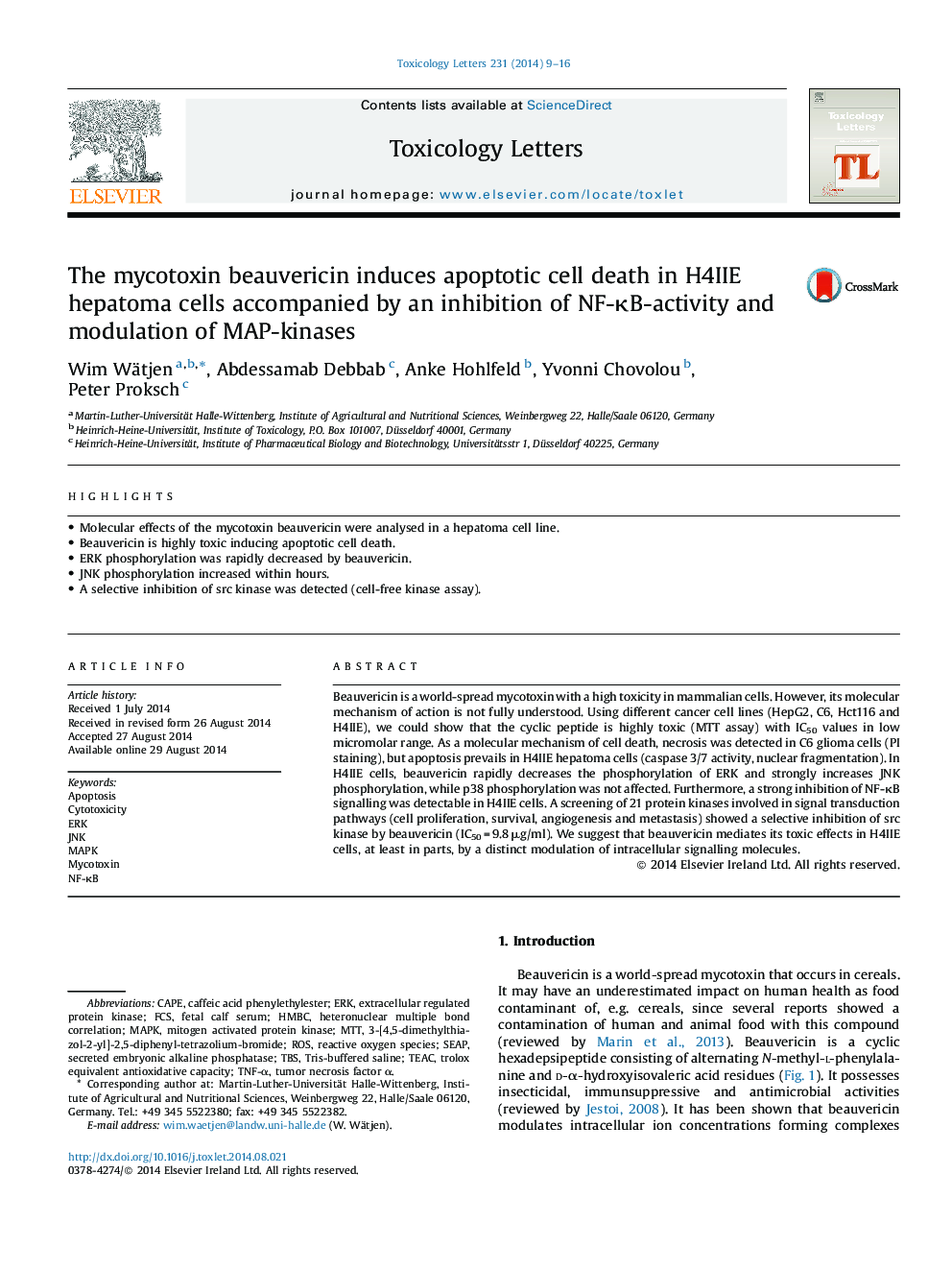| Article ID | Journal | Published Year | Pages | File Type |
|---|---|---|---|---|
| 2598886 | Toxicology Letters | 2014 | 8 Pages |
•Molecular effects of the mycotoxin beauvericin were analysed in a hepatoma cell line.•Beauvericin is highly toxic inducing apoptotic cell death.•ERK phosphorylation was rapidly decreased by beauvericin.•JNK phosphorylation increased within hours.•A selective inhibition of src kinase was detected (cell-free kinase assay).
Beauvericin is a world-spread mycotoxin with a high toxicity in mammalian cells. However, its molecular mechanism of action is not fully understood. Using different cancer cell lines (HepG2, C6, Hct116 and H4IIE), we could show that the cyclic peptide is highly toxic (MTT assay) with IC50 values in low micromolar range. As a molecular mechanism of cell death, necrosis was detected in C6 glioma cells (PI staining), but apoptosis prevails in H4IIE hepatoma cells (caspase 3/7 activity, nuclear fragmentation). In H4IIE cells, beauvericin rapidly decreases the phosphorylation of ERK and strongly increases JNK phosphorylation, while p38 phosphorylation was not affected. Furthermore, a strong inhibition of NF-κB signalling was detectable in H4IIE cells. A screening of 21 protein kinases involved in signal transduction pathways (cell proliferation, survival, angiogenesis and metastasis) showed a selective inhibition of src kinase by beauvericin (IC50 = 9.8 μg/ml). We suggest that beauvericin mediates its toxic effects in H4IIE cells, at least in parts, by a distinct modulation of intracellular signalling molecules.
